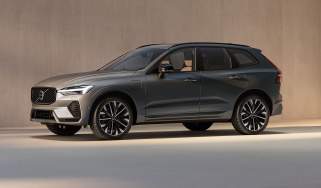‘It’s so sad that Britain's new electric car battery factory is already going bankrupt’
As we approach the end of 2022, Mike Rutherford thinks motorists in the UK have never had it so bad

Much as we love it, the car isn’t always the star. Sometimes it’s actually less important than the people, the numbers, and the jobs in and around the automotive business.
First, a handful of (many) developments in growth-obsessed, recession-ravaged Britain as we approach the end of 2022: the population recently hit 68 million (in a land where our road ‘system’ is set up to deal with more like 50 million); the general annual inflation rate hit a 41-year high of 11.1 per cent; and hikes in the prices of new cars, and the petrol, diesel and electricity to power them, are even higher.
As for interest rates, they’re through the roof, too. And with few, if any, ordinary, working-class families able to save up the necessary £40,000(ish) for even a modest, medium-sized new electric car, increasingly expensive loans are more obligatory than optional these days. Yet, as our Government proves, large debts and high interest rates can be ruinous.
If you, dear car user, aren’t miffed at the rocketing MIF (Motoring Inflation Figure), you bloody well should be. The motorist has never had it so bad.
On the employment front, in little more than half a decade, UK car production has almost halved, with an inevitable and tragic drop in employee numbers. Insanely, the allegedly job-creating, £3.8-billion Britishvolt gigafactory in Blyth is already desperately trying to fight off bankruptcy, which must be bitterly disappointing for the local workforce whose hopes were raised then cruelly dashed.
And although it’s great to see Scotland finally returning to the car-building game with what it not so modestly describes as “the world’s most capable all-electric 4X4” (really?), it’s all a bit cottage industry. The agricultural off-roader will be built by Munro Vehicles at a rate of less than one a week in 2023. But there is talk of 300 new jobs at its East Kilbride plant. Based on these numbers, that’s six workers for every vehicle made. And that’d be nuts.
On a related point, Ford boss Jim Farley last week admitted that 40 per cent fewer production line workers are required to build pure-electric vehicles versus petrol or diesel versions. That’s great for him as an employer paying the wages, but not so good for countless factory employees trying to put food on the table.
But never mind, we’ll make Britain “the world’s next Silicon Valley,” according to Chancellor Jeremy Hunt when making his Autumn Statement. And although that’s naive wishful thinking on his part, his plan to impose Vehicle Excise Duty on pure- electric cars from 2025 is for real. The BBC’s high-profile “Electric car drivers must pay tax” headline suggests that, currently, EVs are some sort of tax-free zone. But try telling that to a motorist who had to pay £8,000 in Value Added Tax to HM Treasury when buying his or her modest, £40,000, 100-per-cent-electric family car.
Still, it’s not all bad news. Hunt could have – some say should have – raised the duty and/or other taxes at the pumps and EV chargepoints. But he didn’t. And that was about the only good news for motorists in the financially punishing month of November 2022.
Do you agree with Mike? Let us know your thoughts in the comments section...
Find a car with the experts



